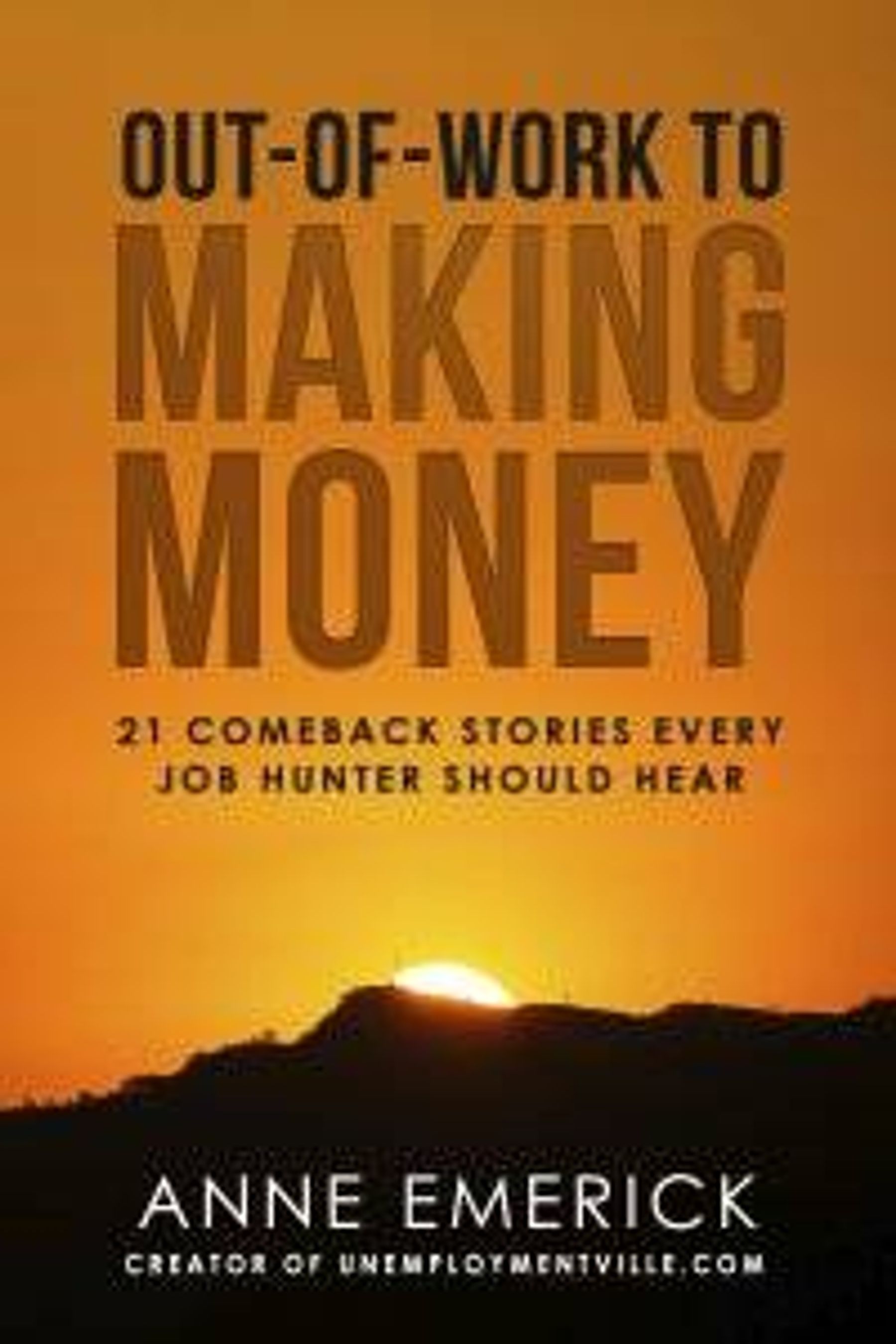Ways to Cope When You Are Out of Work
What rattles the jobless, from the author of a book on comebacks from unemployment
(Editor’s Note: This story is part of a partnership between Next Avenue and Chasing the Dream, a public media initiative on poverty and opportunity. This article is excerpted from the forthcoming book, Out-of-Work to Making Money: 21 Comeback Stories Every Job Hunter Should Hear. ©Copyright 2018 Aboon books.)

I lost my job (at IBM) and then had a horrible stay in Unemploymentville. After writing Out-of-Work to Making Money: 21 Comeback Stories Every Job Hunter Should Hear, and hearing from nearly two dozen people who have been out of work, I’ve concluded that there are three things that can really rattle you when you’re jobless. And I have suggestions on how to deal with each.
1. You Have No Control
Nothing says “you have no control over your life” quite like suddenly finding yourself involuntarily separated from your job.

You probably had plans for what you were going to do with that next paycheck (like paying your bills) and that plan isn’t happening. You need to replace that source of income and hopefully do it quickly; that involves lots of other steps over which you have little control. For example, you can apply or jobs, but you can’t make them respond.
Here are a few suggestions for feeling just a bit more in control of your life or being more comfortable with not controlling your life; only you can decide which will work best for you:
Plan the part of the day when you would normally be working. The plan doesn’t need to be ambitious; you can plan one day of the week for binge-watching Netflix if you want.
Add an activity that is straightforward for you to do regularly. Examples: taking a class at a gym or walking your dog each day or taking an online class.
Set short-term goals you are confident you can master. Like: I will run one mile each day. Or I will apply for three jobs each week.
Track your expenses and develop a survival budget. How long can you go with no income? How much money would you need per month to break even if you cut back on some items?
Also, if you believe in God, or some kind of higher power in the universe than yourself, now — when you are out of work — is a good time for prayer and reflection.
2. You Feel Alone
Workplaces are the modern-day small town. Whether yours was a friendly, welcoming place or an adversarial battleground, it was still your home for many hours of your life. Co-workers are often the first to know when you are facing a major illness…your car breaks down…your basement floods…your parents need help…or you are getting divorced or married.
And you will usually get advice or stories of similar experiences when these things happen. As we chat about the bumps in the road, there is a built-in support network. People generally don’t realize that until it’s gone.
My advice:When you are out of work, it’s a good time to invest in your non-work connections. Visit family or friends who you might normally not have time to see. If you belong to a volunteer organization, a religious group, a local theater group or take a class, increase what you are doing in it and considering finding others. Get out of the house regularly.
You may want to seek out a group where sharing your out-of-work story is easy. If you know someone who was laid off at the same time you were, maybe you can be job-seeking accountability buddies. Consider joining Neighbors-helping-Neighbors USA if there’s a chapter near you, or start one.
3. Financial Stress
Few people can lose a regular paycheck for a substantial period of time without real financial hardship. It makes sense to sit down as a family (or as an individual with a good friend) and look at your finances. Are there places where you can reduce spending?
And just as important as spending, what ways do you have to earn some cash other than a “regular job?” Can you drive for Lyft or Uber? Babysit or tutor children? Can you perform a gig on Fiverr.com or dogsit with a service like Rover.com?
Even though it can be painful to tell people you are out of work, you will find that many people are sympathetic; let them know you’re available for odd jobs or housesitting.
Consider all your assets. Do you have a spare room you could rent out on Airbnb? Or add a roommate?
Look at items you have that you might sell, such as “nearly new” exercise equipment you never liked. Maybe you have gifts that were never your taste. Or a musical instrument or clothes you don’t need.
And be sure to claim unemployment benefits if you are eligible. Google “unemployment benefits” and the name of your state. Odd jobs, unemployment benefits, selling items and cutting expenses may not solve all your financial challenges, but they will help. Double bonus: some of these things may help you pick up skills and personal connections that could return you to your previous income level sooner.
This story is part of our partnership with Chasing the Dream: Poverty and Opportunity in America, a public media initiative. Major funding is provided by The JPB Foundation.

